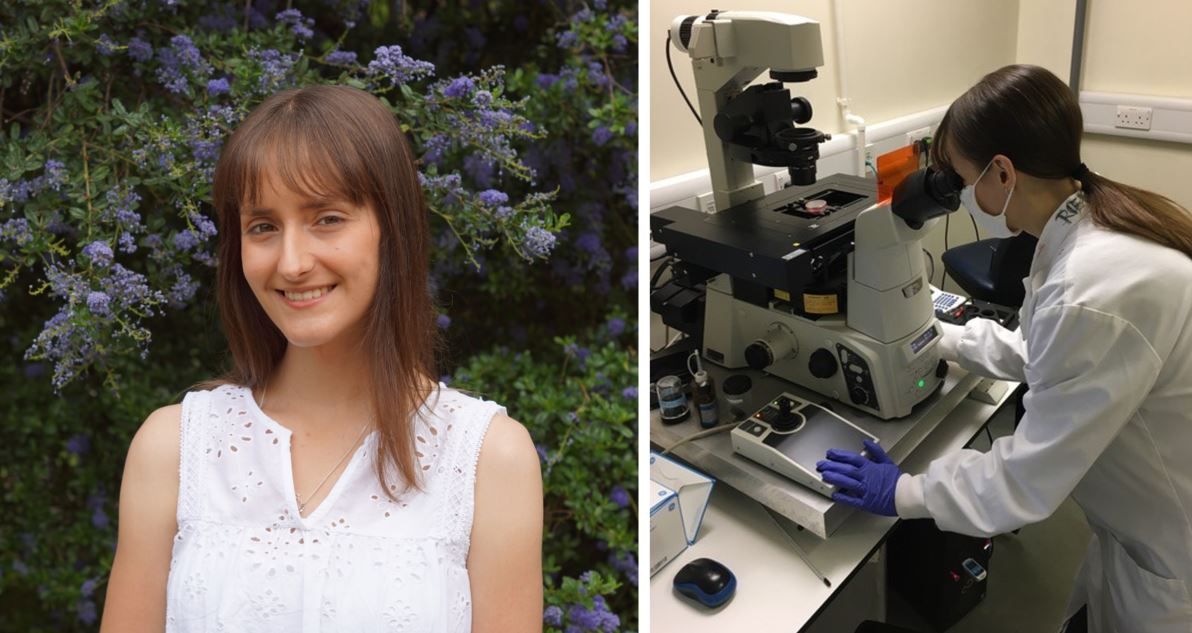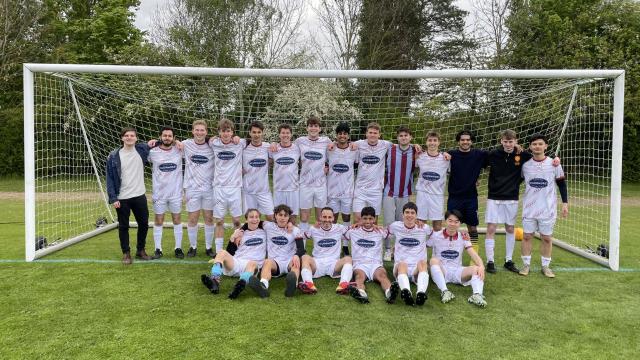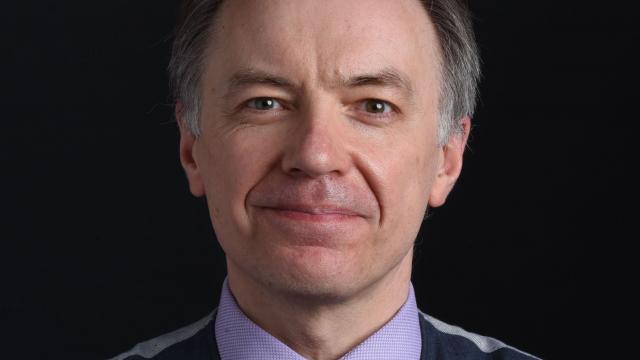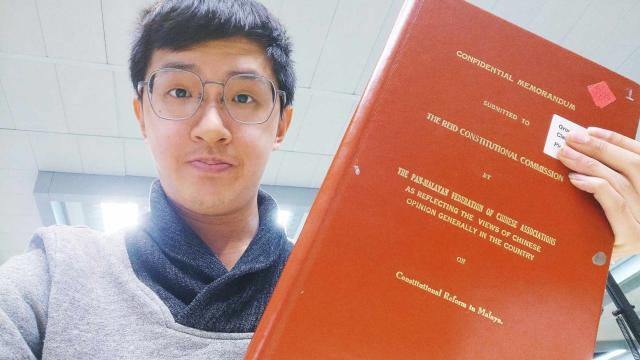Name: Rachel Mckeown
Hometown: Merthyr Tydfil, South Wales, UK
Extracurricular interests: Reading, running
Postgraduate degree: PhD in developmental neuroscience
Undergraduate life at Catz
"I first joined Catz as an undergraduate student. I knew for a long time that I wanted to study Natural Sciences at Cambridge and having explored the different Colleges, I decided that Catz was the best fit for me and was fortunate enough to be made an offer. Moving to Cambridge from a small Welsh village was initially nerve-wracking, but the College is so friendly that I soon found my feet. When I reached the final year of my degree I joined the laboratory of Professor Kristian Franze to undertake my research project. I quickly realised how engaging and exciting I found the research interest of the lab; nervous system mechanics is a relatively new field with so many unanswered yet important questions! I knew I didn’t want my undergraduate project to be the end, so I raised the idea with Professor Franze of continuing my project into a PhD – and here I am!"
Postgraduate life at Catz
"Catz has long been a home-away-from-home for me, and it was an easy transition from undergraduate life to becoming a member of the College’s postgraduate community (known as the MCR). Since the start of my PhD, I’ve had the pleasure of getting to make new friends within the MCR (despite the pandemic) through both online and socially-distanced in-person events. I’m really looking forward to the post-COVID era where some of my favourite aspects of Cambridge life (such as punting and formal dinners) can resume."
Postgraduate studies
"I’m interested in the development of the nervous system, a process that must be tightly regulated; failure to make appropriate connections can prevent its proper functioning and can result in developmental neurological disorders. Developing nerve cells have to somehow navigate through the environment to reach and connect with the right target cells. To do so, they send out a long ‘branch’ called an axon, tipped with a ‘growth cone’. Growth cones can interpret chemicals in the environment, but also ‘feel’ mechanical aspects of the environment, such as the stiffness of surrounding brain tissue. My work is focused on how the chemical and mechanical ‘maps’ of the developing brain interact with each other to make axon navigation very reliable and accurate. Ultimately, insights gained from studying developmental processes may be valuable for clinical settings such as spinal cord injuries, promoting the regeneration of axons and hopefully functional recovery."
The Harding Distinguished Postgraduate Scholars Programme
"I was honoured to receive the news that I’d been offered a Harding Scholarship, which was established during my time as an undergraduate at Catz. The Scholarship brings together students from all corners of the world, studying a wide range of subjects, and it has been fantastic to get to know people from such different backgrounds to myself. Being part of a funding programme that supports such a diverse scope of subjects really broadens your perspective of academia. The research allowance has afforded me fantastic opportunities to attend conferences and engage with other researchers, and I hope to take the opportunity to train abroad when COVID permits and bring new skills back to the lab. Being a student representative on the Harding Scholar committee has been a really rewarding experience too, taking an active role in shaping the programme and the experiences of other Scholars."
Advice for undergraduates thinking of applying for postgraduate studies
"As a scientist, the main advice I’d give is to try and get as much of an idea of what life as a researcher is really like before taking the leap into postgraduate life; some degrees are very theory-based and don’t give the best indication of what it is like to actually do the research that you read about in papers and textbooks. I applied for internships in labs whose work I found interesting and got to experience different lab environments that way, but the six-month research project I completed as part of Part II Physiology, Development and Neuroscience here at Cambridge really reassured me that research was for me. Research-based PhDs can be daunting and challenging at times, but by taking the time to find a field you love and a stimulating and supportive lab environment, it can really make all the difference."





